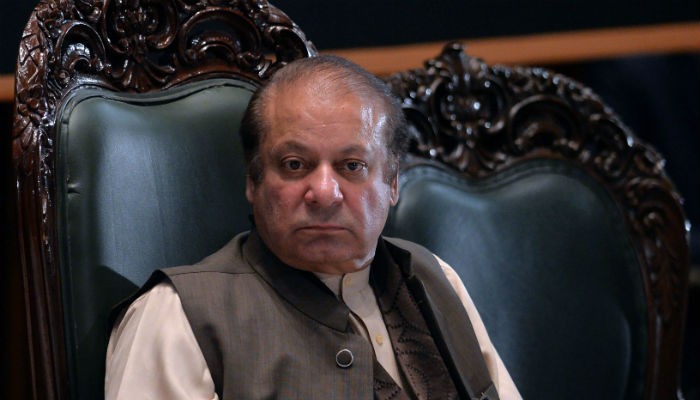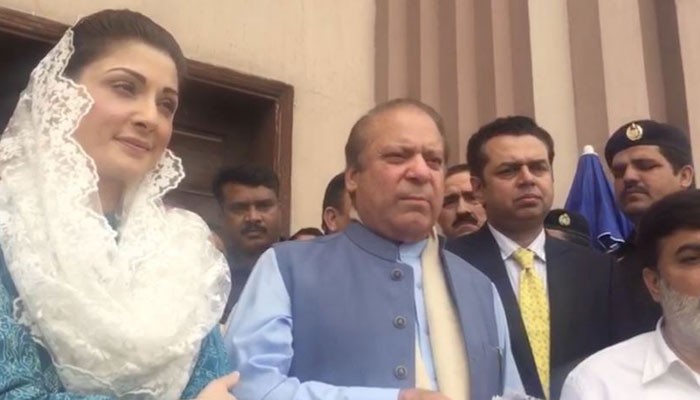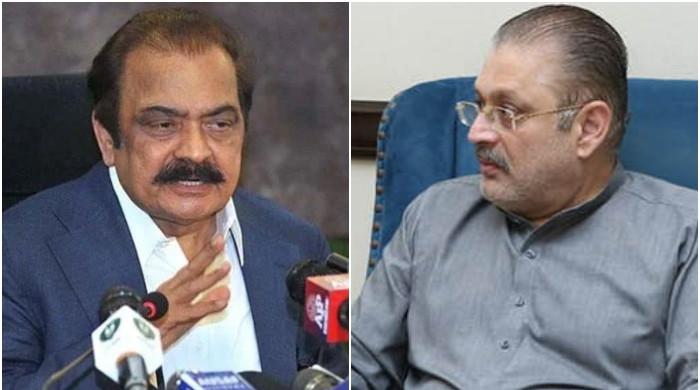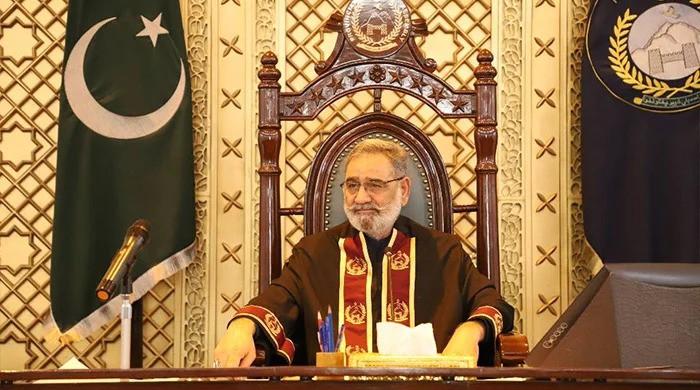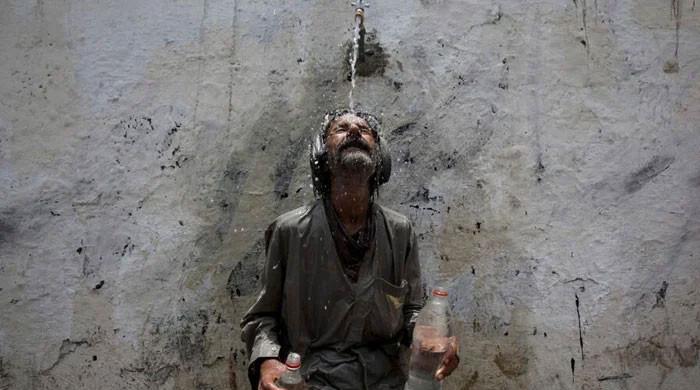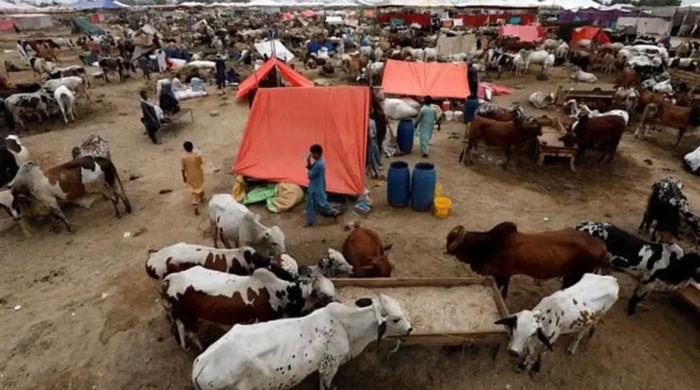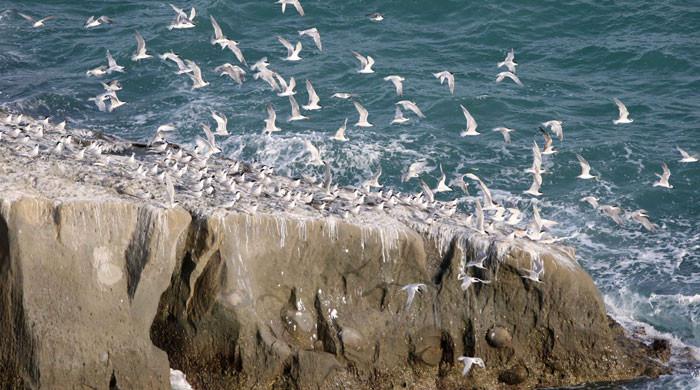Nawaz tells court challenges, pressure increased after Musharraf treason case
The former premier said that once the proceedings started against Musharraf he had gauged that it would be hard to get the former military ruler convicted
May 23, 2018
ISLAMABAD: Former prime minister Nawaz Sharif, while recording his statement for the third consecutive day in Avenfield reference, remarked that challenges and pressure increased as soon as the treason case was initiated against former president General (retd) Pervez Musharraf.
The Avenfield reference, pertaining to the Sharif family's London properties, is among three filed against the Sharif family by the National Accountability Bureau (NAB) last year on the Supreme Court's directives.
The former premier said that once the proceedings started against Musharraf he had gauged that it would be hard to get the former military ruler convicted. "All the weapons are made for politicians," Nawaz remarked.
"When Musharraf left for the court in 2014 he directly went to the hospital as it was decided from before. Musharraf pretended to be sick and avoided the case hearings," Nawaz said, adding the judges failed to send Musharraf behind bars for even one hour.
Nawaz, while recording his statement in the last five of the 128 questions asked by the accountability court, said that an intelligence agency officer had conveyed to him that he should resign or he would be sent on an extended leave.
"The purpose of the message was to question how dare I initiate an inquiry against Musharraf," Nawaz said. The three-time premier also remarked that he was asked to make the parliament endorse the second martial law by Musharraf. "The message was conveyed to me by Asif Ali Zardari. However, I refused to do it.”
This is the conclusion of my actual crime, he added.
"If only you could summon the souls of Liaquat Ali Khan, Zulfikar Ali Bhutto and Benazir Bhutto and ask them what happened," he said, adding "If only all PMs could be summoned and asked why weren't they allowed to complete their constitutional tenure?
"The sole purpose of the 2014 sit-ins was to pressurise me. PTV, parliament, PM House, President House none of them were safe from the plans of the elements causing unrest. Those who were making those plans thought I would be pressurised,” he added.
PTI reacts to Nawaz's statement
PTI spokesperson Fawad Chaudhry said that the court had only asked Nawaz two things which were regarding the Avenfield properties and the money in the accounts.
However, Nawaz didn’t talk about either of these things. "What he did say was similar to what we are used to hearing him speak at his rallies."
Nawaz has tried to engage in politics in court for which he will have to pay a heavy price, he added.
Nawaz denies business dealings with Qatari family
During Tuesday’s hearing, Nawaz had denied being involved in any business dealings with the Qatari family, adding that he is not involved in settlement of Avenfield properties either.
He also remarked that his sons Hasan and Hussain are adults and responsible for their own actions. “Just because they have been declared absconders, it cannot be used against me,” Nawaz added.
Over his alleged involvement in Dubai Steel Mills, Nawaz said he just attended its inauguration ceremony and nothing more.
Nawaz also said that he was never the owner, director or shareholder of Capital FZE. "I was never affiliated with the business dealings of the company."
Over the letter from the UAE's Justice Ministry, Nawaz said that he was unaware that the letter came in response to any mutual legal assistance (MLA). "The letter was never presented as evidence in court, therefore, it cannot be used as proof," he added.
Nawaz remarked that the 2012 Mosaic Fonseca letter presented by Zia cannot be used as a primary document, adding that the letter could not be certified as per the customary laws.
The corruption cases
The corruption references, filed against the Sharifs, pertain to the Al-Azizia Steel Mills and Hill Metal Establishment, offshore companies including Flagship Investment Ltd, and Avenfield properties of London.
NAB had earlier filed interim references in all three cases and later added supplementary references to them with new evidence and witnesses.
Nawaz and sons Hussain and Hasan are accused in all three references whereas his daughter Maryam and son-in-law Safdar are accused in the Avenfield reference only.
The court originally had a deadline of six months which ended in mid-March but was extended for two months after the judge requested the apex court.
Later, on May 9, the trial court's second plea for a deadline extension was approved by the Supreme Court which gave a month to both sides to finish the corruption cases.
